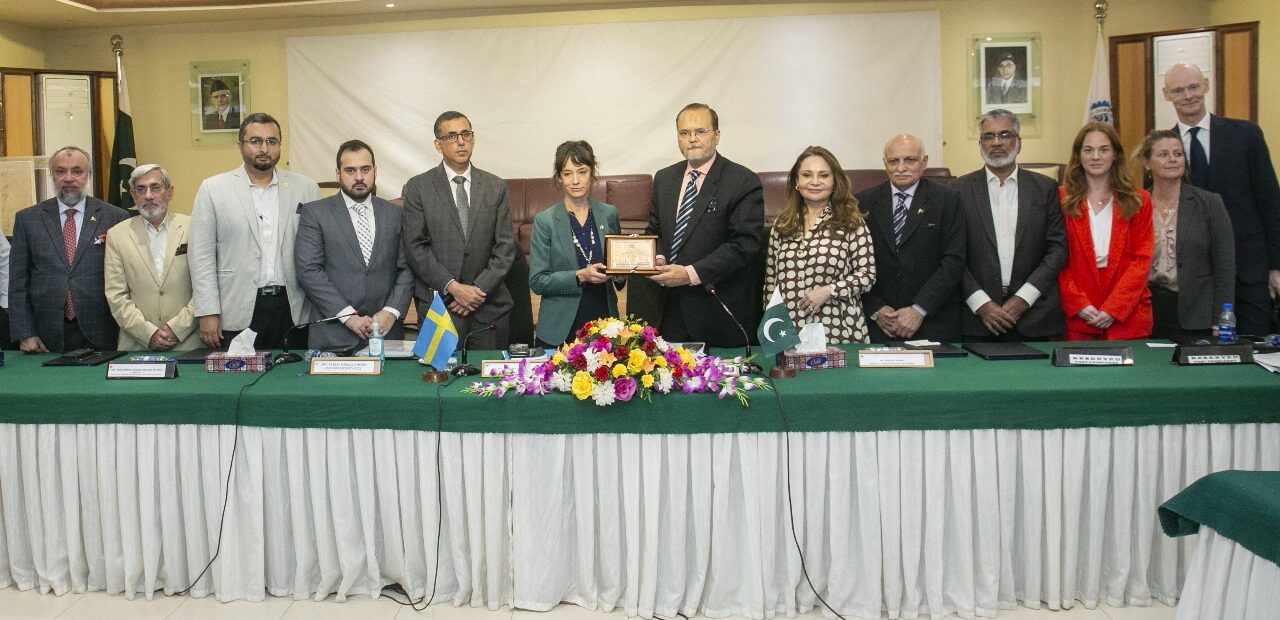Karachi, September 6, 2019: The reforms agenda being pursued by the government with the support of IMF Extended Fund Facility (EFF) is aimed at putting the economy on a sustainable growth trajectory and the progress on nearly all the performance and structural benchmarks during Q1 FY20 is so far very encouraging with strong indication that all the targets will be met.
“The Finance ministry is fully committed along with the IMF towards the ongoing reforms program. The reforms program has 7 performance criteria, 5 indicative targets and 13 structural benchmarks and the progress on all of them is very encouraging,” says a statement issued here today.
The Ministry has also dispelled the impression created in a section of the media claiming that the government will face a gap of up to Rs 1 trillion in the FY20 fiscal framework which is not based on facts.
The Ministry of Finance has maintained that the FY19 Fiscal outcomes were due to concerns over slowdown in growth and there were three key factors including Monetary & Exchange rate corrections, need for protection of citizens from rising oil prices and expanding social safety nets and escalation on border with India which contributed to the fiscal deficit rising to 8.9 percent of GDP, against target of 7.2 percent.
The SBP has taken a policy direction in FY19 to correct the large trade deficit and shore up FX reserves. These measures have helped to reduce the Current Account deficit (CAD) to US$ 13.5 billio
However, the rise in interest rates and a weaker Rupee have led to a significant jump in the government’s debt servicing costs. These contributed Rs 104 billion to the overall slippage. On the other hand, the devaluation of the currency eroded profits of the SBP for FY19, with a shortfall of Rs 135 billion in non-tax revenue of the government.
Non-tax revenue shortfall was exacerbated by the litigation by the telecom operators on renewal of the 3G/4G licenses, and revenue of Rs 80 billion did not materialize in FY19. This matter is now partially resolved with telecom operators depositing Rs 70 billion as
FBR tax revenues shortfall of Rs 321 billion in FY19 was the single biggest reason for the increase in the fiscal deficit and it was driven by a fall in imports (which account for 45 percent of total FBR tax collection in customs duty, GST and excise).
However, other key factors also contributed. Most notably, the decision of the government to shield domestic consumers from rising oil prices resulted in over Rs 100 billion shortfall in GST collection.
Against a revised target of 7.2 percent of GDP (published in April 2019), at the outset of the program – the fiscal year FY19 closed at 8.9 percent of GDP indicating a slippage of Rs 686 billion.
While revenue shortfalls contributed significantly to the rise in deficit, the expenditure overruns were also necessitated by the need to expand social safety nets and higher investment spending (PSDP). If the government had decided to curtail these expenditures further, it would have led to further slowdown in GDP growth and caused a hard landing for the economy already undergoing major monetary and exchange rate adjustments.
The attack on Pakistan by Indian forces and the standoff at the border has also resulted in significant escalation in the FY19 expenditures, all of which are necessary to ensure safety of citizens.
The Ministry of Finance has maintained that while targets under IMF program are ambitious, there is no need to renegotiate. Similarly, while the fiscal deficit overrun in FY19 was due to macro adjustments in the economy and the need to protect citizens from rising oil prices, it is believed that it will have a material impact on the Budget outcomes for FY20.
The payments from telecom operators and privatization of the two RLNG plants are likely to materialize in the current fiscal year and will help the government to reduce the fiscal deficit in FY20 to 7.3 percent of GDP. The results of the first two months are encouraging with FBR revenues posting increase of 28 percent y/y.
The reforms agenda pursed by the Government of Pakistan and supported by the IMF Extended Fund Facility (EFF) are target oriented but necessary to put the economy on a sustainable growth trajectory. The reforms program has 7 performance criteria, 5 indicative targets and 13 structural benchmarks.
The progress on nearly all the performance and structural benchmarks during Q1 FY20 is encouraging and targets will be met. Finance ministry is fully committed along with the IMF towards the ongoing reforms program.
Next week MoF will welcome Jihad Azour, Director of the IMF Middle East and Central Asia Department and apprise him on the results achieved so far. However, this is not an IMF review mission as certain segments of the media have suggested in their publications.
IMF technical levels talks are expected be held at a later stage after completion of Q1 FY20 and will provide both teams the opportunity to review progress made to date.


























































































































































































































































































